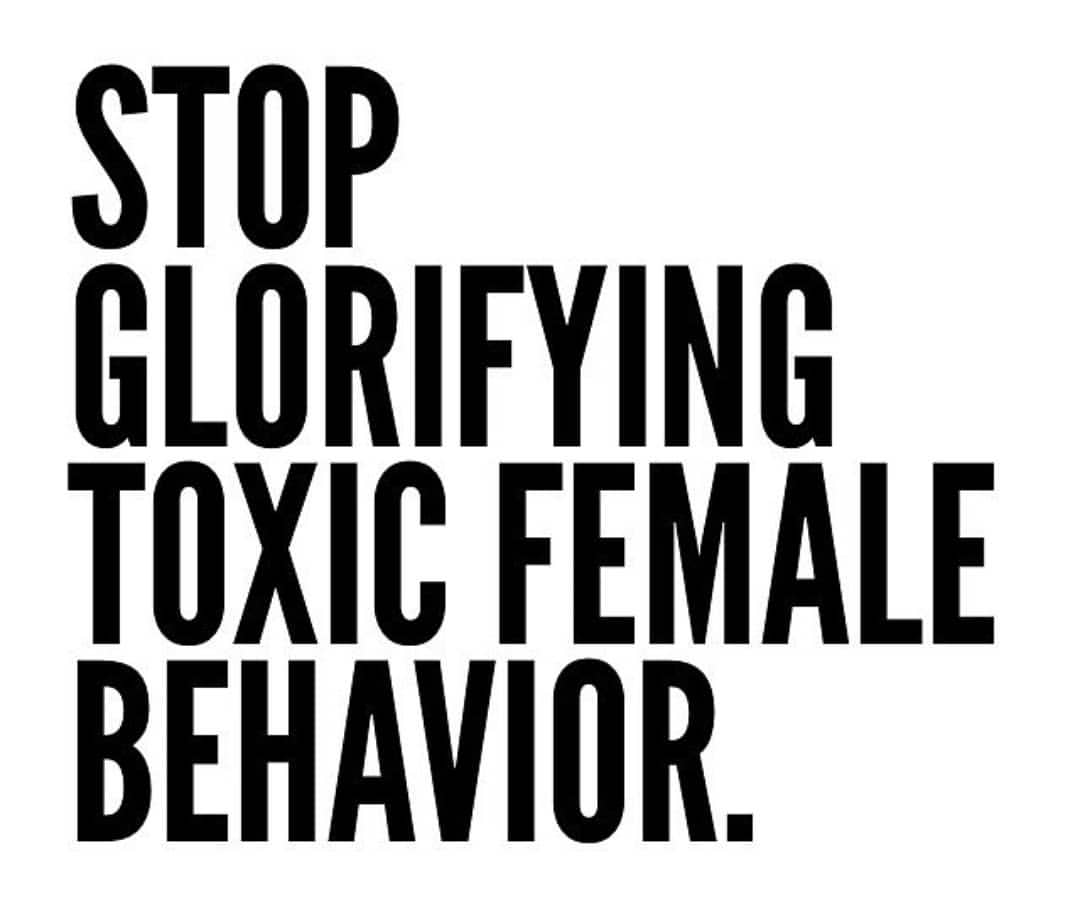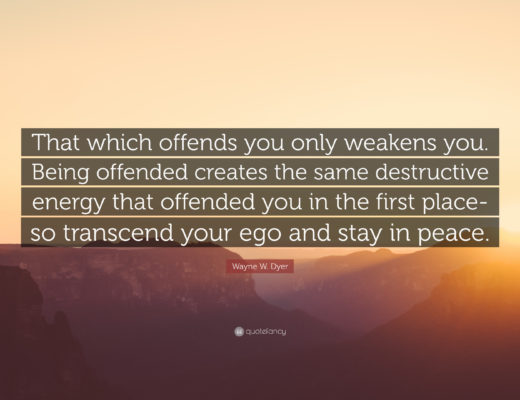In light of the intense reactions to the Gillette commercial – and the concept of “toxic masculinity” – I think its important to have a follow-up discussion about “toxic femininity.”
Really, we could give these toxic female behaviors a number of names… bullying, bitchiness, etc., but for consistency’s sake, let’s call it toxic femininity.
Women can be ruthless – especially to one another. An honest discussion of the ways women are held back and mistreated in this society requires acknowledgement of the ways they [often] try to destroy one another. And while the topic of toxic masculinity is currently far more trendy, focusing on the bad behaviors of a minority of the male population without acknowledging the commonly catty, bitchy, and downright mean ways that women and girls treat one another is, well, hypocritical.
Perhaps, if instead of pointing the finger at an underdeveloped subset of the male population, we turned the focus on ourselves, we would start to understand the problem from another perspective.
Maybe it’s time for us, as women, to take a long, hard look at the ways we treat one another. Maybe it’s time we get honest about the ways women actually undermine the collective progress of womankind. If we want to command equality and right injustices, we’ve got to begin by putting an end to the eviscerating hostility, competition, and bitchiness that has become culturally normalized among women.
Learning to Be Toxic
Girls aren’t born toxic and mean – but they’re learning how to behave these ways at younger and younger ages. Fortunately, I wasn’t really bullied as a kid, but I was definitely picked on… by other girls.
Girls who I thought were my friends.
There was a period in middle school when I ate my lunch in a bathroom stall because I didn’t have anyone to sit with without being picked on. I look back now and realize just how sad (and gross) that was… eating my sandwich in a dirty bathroom stall?
The question I circle back to is where do girls learn to be mean – and why do we tolerate – nay, condone – these behaviors? If we want to have conversations about bullying in schools, we should begin by focusing on girls and the cruel ways they treat one another.
This is where toxic femininity begins.
I saw the bullying between girls as a teacher, but in the last 10 years since I bowed out of that career, as social media has proliferated, girl-on-girl bullying and aggression has gone next level. Now, girls aren’t just picked on at school – social media has created a dysfunctional breeding ground for 24/7 ridicule. Just today, I was having a conversation with the father of a 17-year-old girl who is being picked on in school for – *get this* – being thin and tan.
???!!!???
This is toxic femininity.
Cultural Perpetuation
We have young female celebrities, like the Kardashians, who have built their careers on “throwing shade” at other women, or using their social media accounts and reality television shows to teach impressionable young women and girls how to be mean to one another. I mean, let’s just take a quick glimpse at some of the catty celeb feuds. In 2016, Kim K. slammed Chloë Grace Moretz for criticizing a nude selfie that Kim tweeted. Taylor Swift and Katie Perry engaged in a public feud that resulted in Swift’s hit song, “Bad Blood,” which features a music video of two groups of young women going to head-to-head in a brawl. Recently, Niki Minaj and Mariah Carey exchanged words as judges on American Idol. Grown. Ass. Women.
It seems that America’s appetite for the drama between bitchy women is downright insatiable. This is the stuff that sells. This is the stuff that young women and girls are watching. The crass lyrics of Cardi B, rapping about stealing another woman’s man, movies like “Mean Girls,” which normalize girl bullying, and shows like the Bachelor and Big Brother, which feature grown women acting like catty, immature, classless little monsters. Cultural catch-phrases like “resting bitch face” and norms that praise bitchiness as some sort of alpha female trait perpetuate this toxic femininity well beyond adolescence and early adulthood. Low vibe women get sucked into this dysfunctional and sophomoric state of cattiness toward one another, making snide comments about each another, spreading rumors, engaging in hen clucking, judging, sabotaging, trying to steal each others’ men, and chuckling about other women’s tragedies or struggles.
Toward Men
This behavior is all around us, and I haven’t even touched on the woman-on-man toxic femininity. It seems that in some ways, wayward feminism (that’s right, I said it – and I am a feminist) has gotten so extreme that men are afraid to compliment women, hold a door open, or ask her out to dinner for fears she will cry harassment, or respond in offense at the misinterpreted assumption that a gentlemanly act was somehow insulting her independence. I’ve talked to a lot of men who feel castrated by the women’s movement. They’re confused. In one breath, women are complaining about men not acting gentlemanly and chivalrous – in the other, they’re outraged and quick to interpret a well-meaning compliment as an unwelcome advance.
Women who have made men out to be the enemies, the sole sustainers of injustices against women are often… misguided. This is not to say that toxic masculine behaviors aren’t a thing – they certainly are, and they should be addressed. But so, too, are toxic feminine behaviors.
If women really want to create lasting changes and experience positive empowerment, they should start by embracing this concept of sisterhood. That’s something that men do far better than women. Generally speaking, I think men understand and embrace the concept of brotherhood far more than women understand and embrace the concept of sisterhood. But we would be wise, as women and girls, to get with the program on that. I would venture to say that in the United States, toxic femininity is the greatest enemy to the women collective.
We need to start pulling one another up instead of beating one another down. We have to resist the urge to engage in catty gossip. We have to teach girls to love and support one another, not start rumors and become bullies. We have to choose not to condone this cultural norm of bitchiness and meanness, toward other women, as well as men.
If we want to criticize toxic men, we also need to acknowledge the dire effects of toxic femininity.
Gillette’s challenge for men to be better is one that women can rise to, as well. The challenge to be better is one that crosses all lines of gender, race, religion, age, political affiliation, skin color, etc. We should all endeavor to be better. And we can start by simply improving the ways we treat one another… regardless of peoples’ identifying features.






Why so many boxers are in a wad over the Gillette commercial • The Bachelorette Diaries
February 5, 2019 at 2:01 am[…] Let’s talk about toxic femininity […]